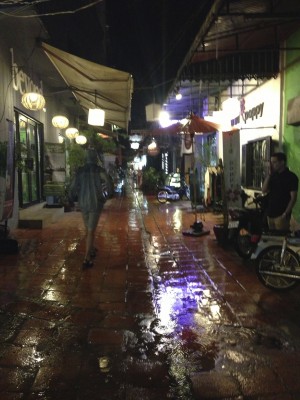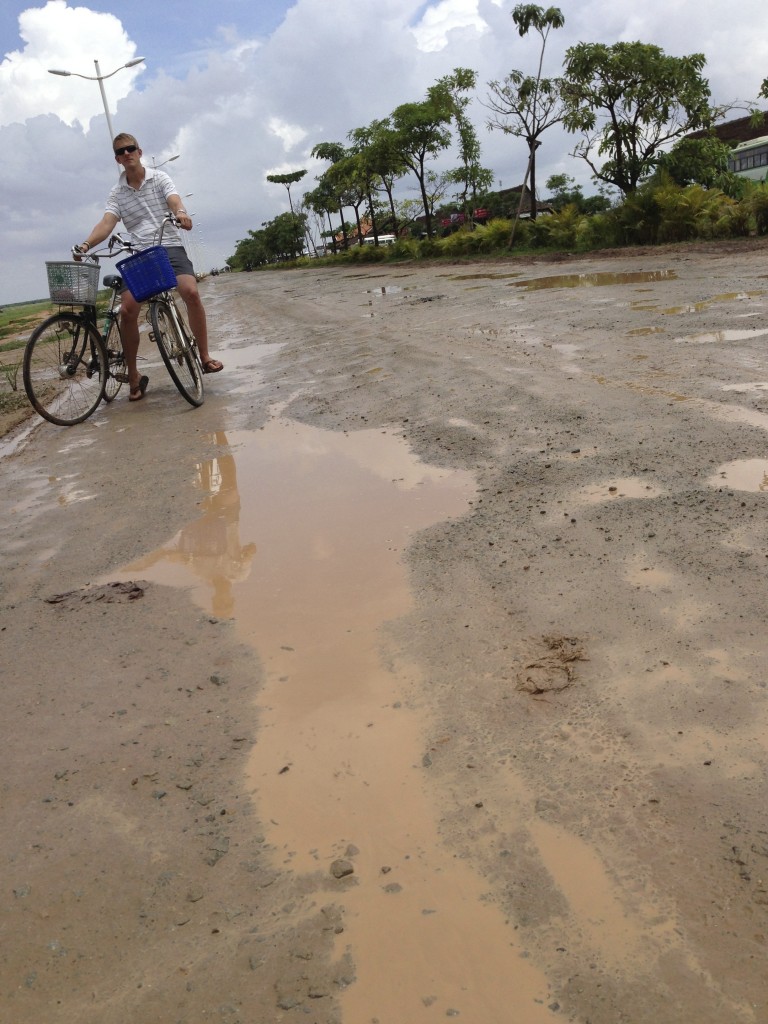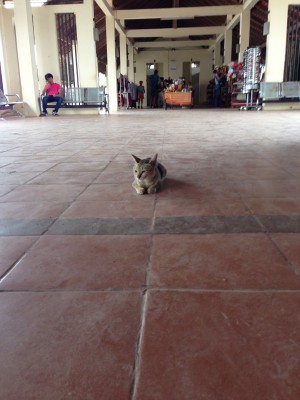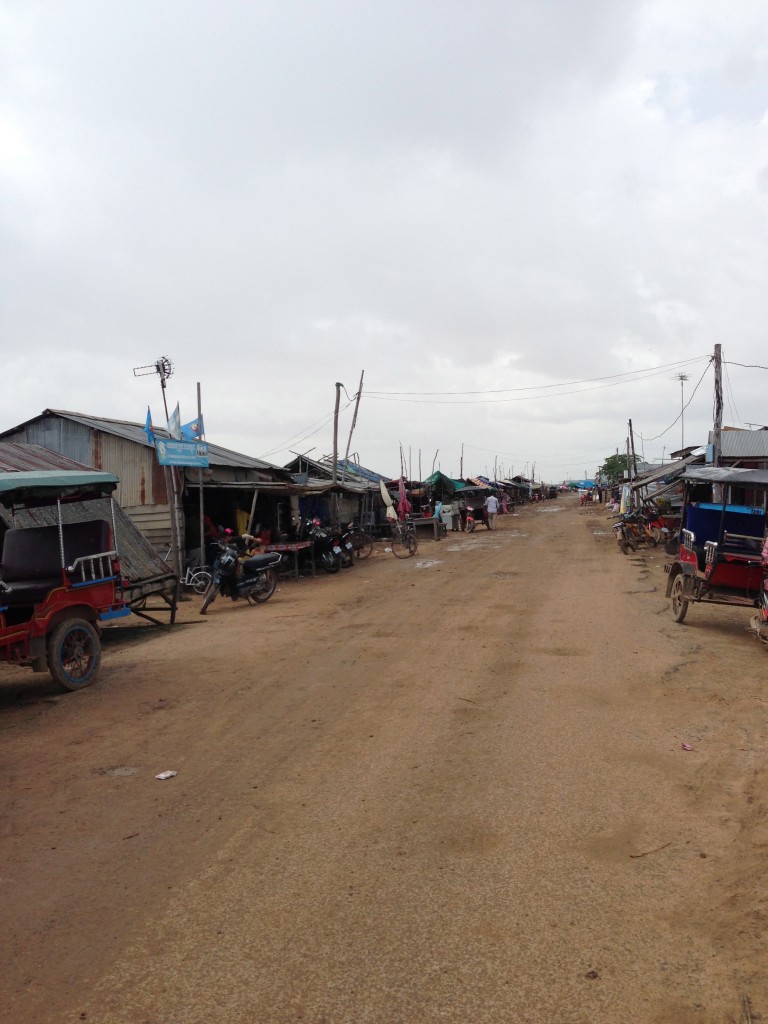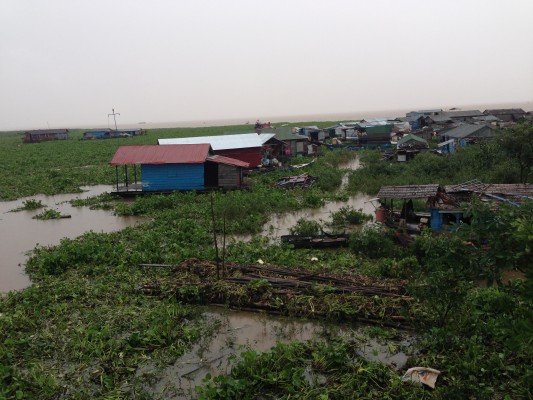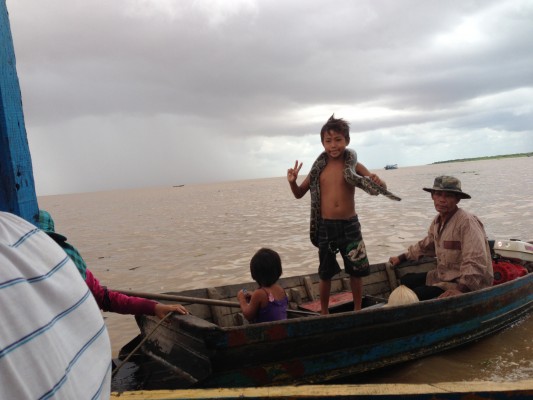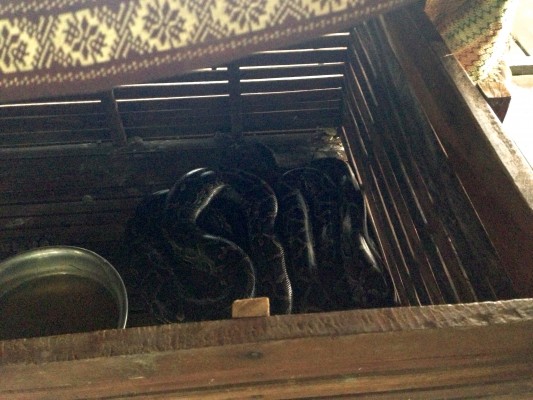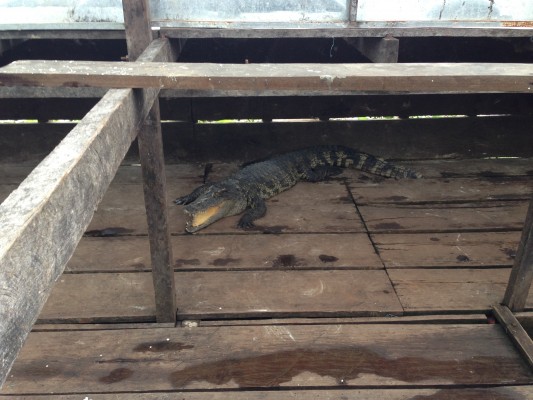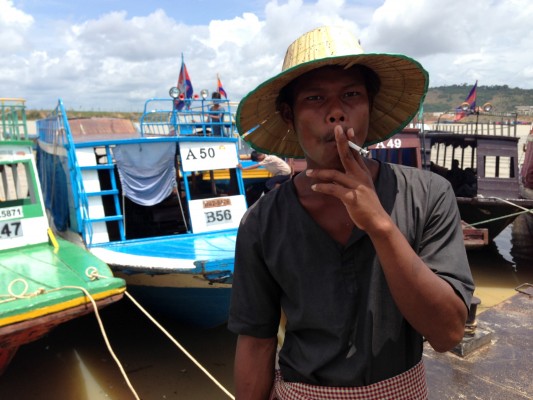Lightfoot Diaries
You are reading: Ok. I’m a Big Fat Smuck The Fantastic World of LeAnne DowningOk. I’m a Big Fat Smuck
 Written by LeAnne Downing
Written by LeAnne Downing
Angkor Wat, in North Western Cambodia, is the largest series of religious structures in the world. This amazing site on the UNESCO World Heritage List, is not something to be missed. My friend Jared and I sprung for a guide and it was well worth it. The guide knew where to go for the sunrise, how to avoid crowds and educated us on the historic significance of each of the temples we saw. One day was not enough near for the archeologist in me, and I wished for more time to knock about on my own in this amazing historic wonder of Cambodia.
I will put a link to more Angkor Wat pictures up soon.
Siem Reap, the town closest to the temples, is a 20 minute tuk tuk drive away. With thousands upon thousands of international visitors each year, the city has become one of varied cuisine and night life. Wall to wall party people on Bar Street juxtapose the small town feel and multiple NGO’s, making Siem Reap a unique visiting experience in Cambodia. And, as parts of Cambodia are known to be rife with good scams, this town is not one to be left behind.
At the time I visited Siem Reap, I had just been ripped off in a big way by a scammer at the Cambodian border and was in no mood for another scam. My skin was tough and as hard as a leather wallet, wrapped in chains and put in a vault. No one was going to trick me out of another penny that was not in fair trade.
But then the little girl approached me. She was about seven years old and was holding a baby. Not just a baby, a newborn who looked completely exhausted. The girl holding her, who I assumed was her sister, held a bottle of formula to the babies mouth, but the baby wasn’t sucking it. She was hanging limp, eyes closed in the cloth wrapped in her sisters arms. It was raining and drops of water clung to both the girls faces that were turned up to me.
“Will you give me….”
My leathery heart kicked in and before the girl even finished her sentence I had said “no” and continued down the street.
“But…” the girl followed me and was speaking excellent English, “I don’t want money. I just want formula for the baby. She needs to eat. Just formula”.
This made me stop. Shouldn’t that baby be able to nurse from her mother instead of needing formula? It felt like a scam but I couldn’t figure out how they would do it. I mean, what could they really do with baby formula? And what if it wasn’t a scam? Sure, they could ask someone else and eventually get the food, but was I going to be the one to tell a girl and a baby, getting soaked from the rain and asking me for something, was I going to tell them No?
I didn’t tell them no. We went to a store and got a can of powdered formula for $25 dollars which I hoped would get them off the street for awhile.
Now, let’s jump to the next day, where the story continues.
Jared and I rented bikes and road a wet and muddy 11 kilometers to see a “floating village”, a village of people who have formed a community on boats. They will move themselves from place to place depending on the weather, the tides, the fish. We didn’t take the tour packages offered in town, but instead went off on our own hoping to find a local fisherman who we could hire to take us into the village.
When we got to the river, we were met by a Big Cement Visitor Center for the floating village. Busses were pulling in and tourists in mass were getting out to buy tickets for group boats that would float them through the village.
Hum.
We bypassed this and instead went on to the village beyond hoping to find a local boat. Instead we came to a road block and a guard that would not let up pass into this land-bound fishing village unless we had a three dollar ticket from the Cement Visitor Center. We turned around and headed back.
Hum again.
Jared and I had a group discussion. Should we go back to the visitor center and fork up the bucks to get the ticket for the boat or just skip the whole thing? We had biked a pretty long way and we both voted to go ahead and do it while we were there, but we were smelling something fishy and it wasn’t the fish.
We got the boat and visited the village.
“Everyone here is miserable and wishes they could get out” the guide said. “It is a terrible place. No one wants to be here, but there is nothing they can do.”
This declaration of long term desperation, in itself, made me wonder. It has been my experience that people, where ever they are, seem to make the best of their situation. Rarely ever do you hear such blatant proclamations of unhappiness without any vestige of hope. Not even in the Burmese refugee camps of displaced peoples or the trash heaps of Mae Sot did I see attitudes like this.
This boy with the snake came up to show us and when we would give him no money he got mad.
We were taken to a “fish farm, crocodile farm, snake farm” which was actually a floating store with some captive animals. The fish farm was a 5 foot by 5 foot hole in the floor with fish in it. The snakes were all bunched up in a small trunk and the crocodiles you could see below on the lower level.
I hate to admit it – the crocodiles were kind of cool – but not worth the coke I was asked to purchase before leaving and I’m pretty sure any decent animal rights activist would have been having a bloody fit about it.
Then we were asked if we wanted to buy snacks to go take to the children at the school. The poor miserable little children who needed help so badly. By this time we were sure we part of a big systematic filtering system for tourist and declined the offer. Our guide gave me a disappointed look and, with that look, I suddenly felt like I was a disappointment to humanity.
Which is, of course, the key to a good scam. Play on the heart strings of your victims. Be just good enough they can’t quite figure it out and will feel like scum for even thinking about saying “no”.
Later that day we met Matt, who runs an NGO in Siem Reap and has seen it all. “The Floating Village has learned to make it’s sustenance off of taking foreigners for a ride.” He explained how it works. “Our organization tried to help, but the people didn’t really want it. We got them a big water filtering system and the next time we went out to the village, they were using the big clay filters from the system as stools to sit on. They get visitors to buy big bags of rice for them at an elevated price, then turn around and sell it back to the merchant as a lower price and they split the profit.”
He went on to say that it was the same thing for the little girl who hit me up for formula. Her mother, or some other adult, was behind it all and had the same type of reselling deals with the stores where they take the foreigners to buy it.
Sure enough, after I left Matt, another girl with another baby asked me for formula. This time, after I said a guilt free “no”, I watched her for awhile. She left me and soon her miserable face turned into a cheerful one. She skipped up to a woman standing off to the side and asked her something. The woman shook her head and sent the girl and the baby back to the street. 🙁
All of this begs a larger question though, what really is help? If a person who lives in a thatched hut with no running water and only two shirts is happy, who are we to say that they need something else? It seems to be the Suggestion of other things that might create a need that was not originally there. A little education, for me, goes a long way when trying to help.
“If you see a beggar in Laos”, a citizen of Laos told me, “don’t give them food. They are begging because they are lazy and it’s very bad.” When I questioned him further he said “In Laos, the land provides us with all we need. We have a small piece of land we grow rice. We get food from the jungle. We have all we need. When we are old our families take care of us. There is no reason for someone to be begging. Do not give to them.”
I haven’t seen many beggars in Laos. Two, as a matter of fact. Only two. But, I didn’t give to them. And though my first reaction after that was to feel like a heartless smuck, I reframed it, realizing it wasn’t good for anyone to play into the ploy. Then I felt like a smart smuck instead.

